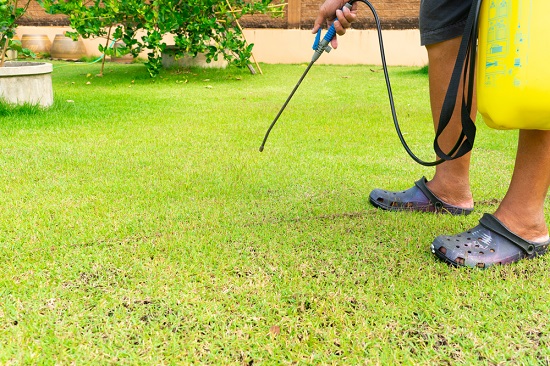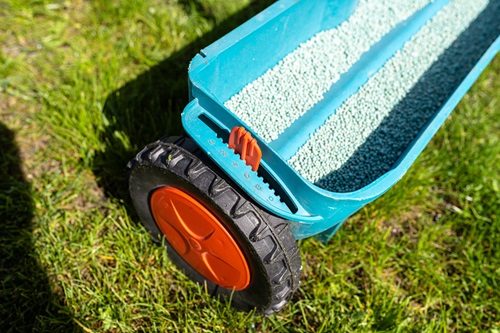
Although pre-emergent herbicides are an essential tool in a weed management program, timing their application can prove difficult. We’ll be discussing key lawn care principles for developing a weed management strategy. We will also discuss what pre-emergent herbicide is capable of doing within a program and when it can be applied to different types of weeds.
Lawn Care: Develop a Weed Control Strategy
It is impossible to eradicate all weeds from a single application. This is something you should emphasize to your customer when developing a weed management strategy for a property. There is no magic bullet that will eliminate all weeds. A good program adapts to the specific needs of each property on a seasonal and annual basis.
Every weed has a survival strategy. They cannot all be eradicated because they have unique life cycles and reproduction methods. The seeds can remain dormant for many years before germinating. They can withstand fire, drought, herbicides, and even fire. Even if the entire property was cleared of seeds, vegetative propagules and seed can still be easily transported to it by wind, water or human activity.
It is important to ask the following questions when you are developing or revising your weed control strategy:
- Which weeds would you like to be rid of?
- Are these weeds to be prevented, eradicated, or both?
- Is there any cultural practice that can help reduce the number of weeds?
- What are the life cycle of weeds and what is the best time to apply pre-emergent herbicide?
- Are there any desired plants on the property? Is the herbicide safe and labeled for them?
- How pre-emergent herbicide works
Let’s take a look at three key principles for pre-emergent control to get an idea of how it works.
Principle 1: Pre-emergent herbicides can be used to kill weed seeds that are germinating.
Pre-emergent, as the name implies, is designed to kill weeds that are not yet in the soil. Pre-emergent should not be applied to weeds that are visible above ground in order to obtain great results. This will prevent you from wasting your time and money down the line.
Please Note: Pre-emergent cannot be used to control weeds as well as weed seeds that already exist.
Only when the weed starts to grow from the seed, and hits the herbicide barrier, will it be killed. Seeds can remain dormant for as long as they are not harmed by pre-emergent herbicide applications. This is why weed management is a continuous process. There will always be some seeds beneath the surface, and some will germinate every season. To greatly minimize large infestations, it is important to apply annually.
Keep in mind that pre-emergent herbicide can affect desirable plants. This includes turf. Pre-emergent must be applied to the turf before seeding. To allow lawn establishment, seed first and then apply pre-emergent 6 weeks later. Seed at least three months after pre-emergent is applied.
Principle 2: Pre-emergent should be properly mixed and evenly applied to the target area in order for best results.
Mixing pre-emergent herbicides correctly is essential for the spray solution’s proper strength. Make sure to carefully read the instructions and calibrate your sprayer as part of your lawn care Myrtle Beach routine.
It is important to cover the entire area. Pre-emergents should be viewed as a blanket. You need to cover the entire area where weed seeds can not germinate. Because there is so much open space for weeds, spot spraying does not work. The manufacturer will tell you how much product to apply “per 1000 feet” or “per an acre”, which will determine how much herbicide you should use per gallon. It usually takes between 1 and 2 gallons to cover 1000 sq. feet.
Principle 3: Pre-emergent herbicides should be irrigated.
Watering in will trigger herbicide, creating a barrier below the surface. Most products require 0.5 inches of rain or irrigation within 21 days.
Apply the pre-emergent herbicide before any rain is expected if you are working in an area that is not irrigated or a drip zone.
Call Conner’s Lawn Care Service now if you need professional help in taking care of your lawn.
Conner’s Lawn Care Service
Myrtle Beach, SC
843-504-4901
http://connerslawncare.com/

